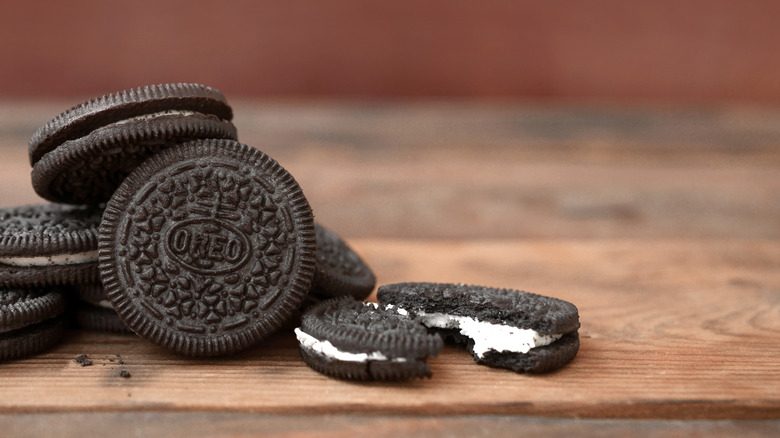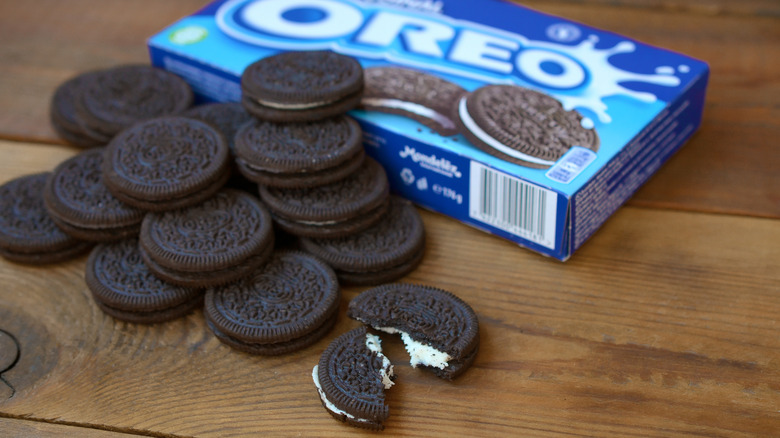The Real Reason Grocery Stores Are Stocking Up On Oreos
Almost a month has passed since signs declaring a strike rose around the Nabisco plant in Portland, Oregon. Now, signs of the pressure exerted by employees' refusal to work are appearing in the company's supply chain. As The Wall Street Journal reports, the strike has expanded to include bakeries and distribution centers in four more states. Grocery stores across the nation have boosted their orders and reduced their discounts for Nabisco products, which include Oreos, Premium Saltines, and Ritz Crackers. The worry is that unless the strike ends soon, these products will be the latest to suffer a shortage during the pandemic.
On August 18, Willamette Week explained that the complaint that triggered the strike was the new contracts that have been proposed. The contracts would cut the overtime hours workers have been receiving for weekend shifts, which weren't counted as part of the 40-hour workweek. In effect, this serves as a massive pay cut for the workers who fed consumers' pandemic-fueled snack cravings. Protesters heavily stressed to Today that they have not taken this action with the intent of gaining anything, but maintaining the relationship they already had with the company.
However, Nabisco has not caved to the demands of the striking unions. Rather, as Willamette Week reported on September 6, the company decided to hire nonunion workers and, with the assistance of the police, began to remove the strikers from the company's land.
Another possible reason stores are stocking up
Obviously, workers not making certain products is a direct reason for a shortage. However, in The Wall Street Journal's coverage, another interesting point is inserted, almost like an aside.
Mark Griffin, President of the Nebraska-based B&R Stores Inc., described how even though the company could order from Keebler, there aren't many options to replace the snacks that come from Mondelez, the corporation that owns Nabisco. So, a secondary reason for stocking up is that there wouldn't be an easy way to provide suitable alternatives to these popular items if the strike ruptures the supply.
This isn't new either. In 2017, The Independent shared the fact that 10 companies control almost the entirety of every food and drink product under the sun. One of these is Mondelez, which, in addition to Nabisco, owns the makers of Trident Gum and Sour Patch Kids. The broader point, then, is that the workers striking to retain the pay structure they have enjoyed for years also demonstrate how turmoil for a single brand can ripple across a whole industry.

